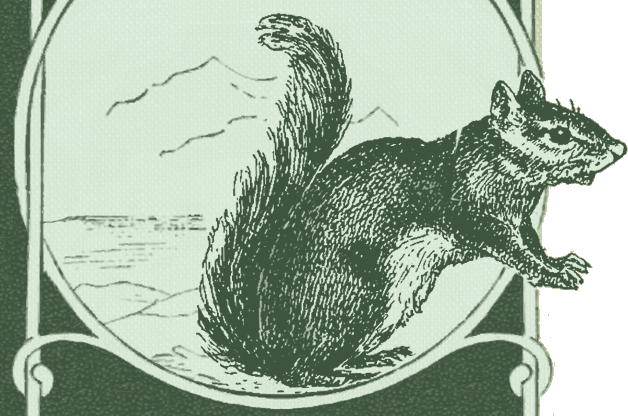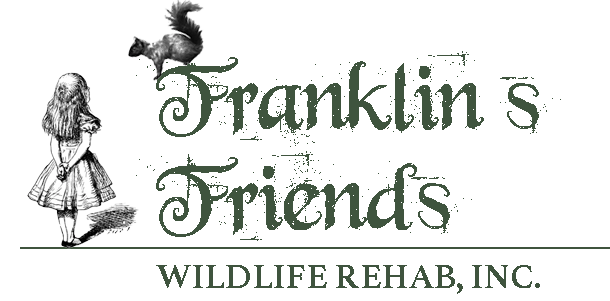These species of tree squirrels:
- are active during the daylight hours
- prefer to live in the cavities of trees or make leaf nests in the branches
- are usually born late winter to early spring but second litters are common late summer
SITUATIONS THAT WARRANT IMMEDIATE REHAB ADMITTANCE:
- Pet caught. Even if there appear to be no injuries, pet saliva contains bacteria that can be fatal to wildlife.
- Infant following person, climbing on door screen, entering house, etc. Squirrels are taught by mama at a young age to avoid human contact. If they are seeking you out, assume they need help.
SITUATIONS THAT *MAY NOT* REQUIRE REHAB ADMITTANCE:
PROBLEM
Tree with nest cut down
WHAT TO DO
Mother squirrels have more than one nest site. Give the mother time to reclaim the infant.
Once activity has stopped in the area:
- Keep the baby warm:
- Gently place the baby squirrel in a small box or a hanging plant basket lined with soft cloth (no holes, loose threads or fringe). Add a covered heat source like:
- A warm water bottle wrapped in a cloth
- A sock filled with rice and microwaved (test for warmth, not hot)
- Hand warmers (HotHands)
- Reunite with the mother:
- Attach the box or basket securely to the trunk of the original tree or a nearby tree—not on the ground if possible (ground placement risks predators and needs constant watching).
- Playing baby squirrel cries on a nearby speaker can help mom find the baby. (NOTE: we are not affiliated with and do not know the folks who created the video we linked to. A quick Google search will help you find similar videos/sound clips.)
- Stay back and give space:
- Keep pets and kids indoors.
- Watch from a distance to avoid scaring the mother.
- Time matters:
- If the mother hasn’t returned by dusk, she likely won’t come back that day. Bring the baby squirrel inside.
- If the mother hasn’t returned by dusk, she likely won’t come back that day. Bring the baby squirrel inside.
- Next steps:
- Place the squirrel in a quiet, dark place indoors with a heat source.
- Contact a permitted wildlife rehabilitator as soon as possible




